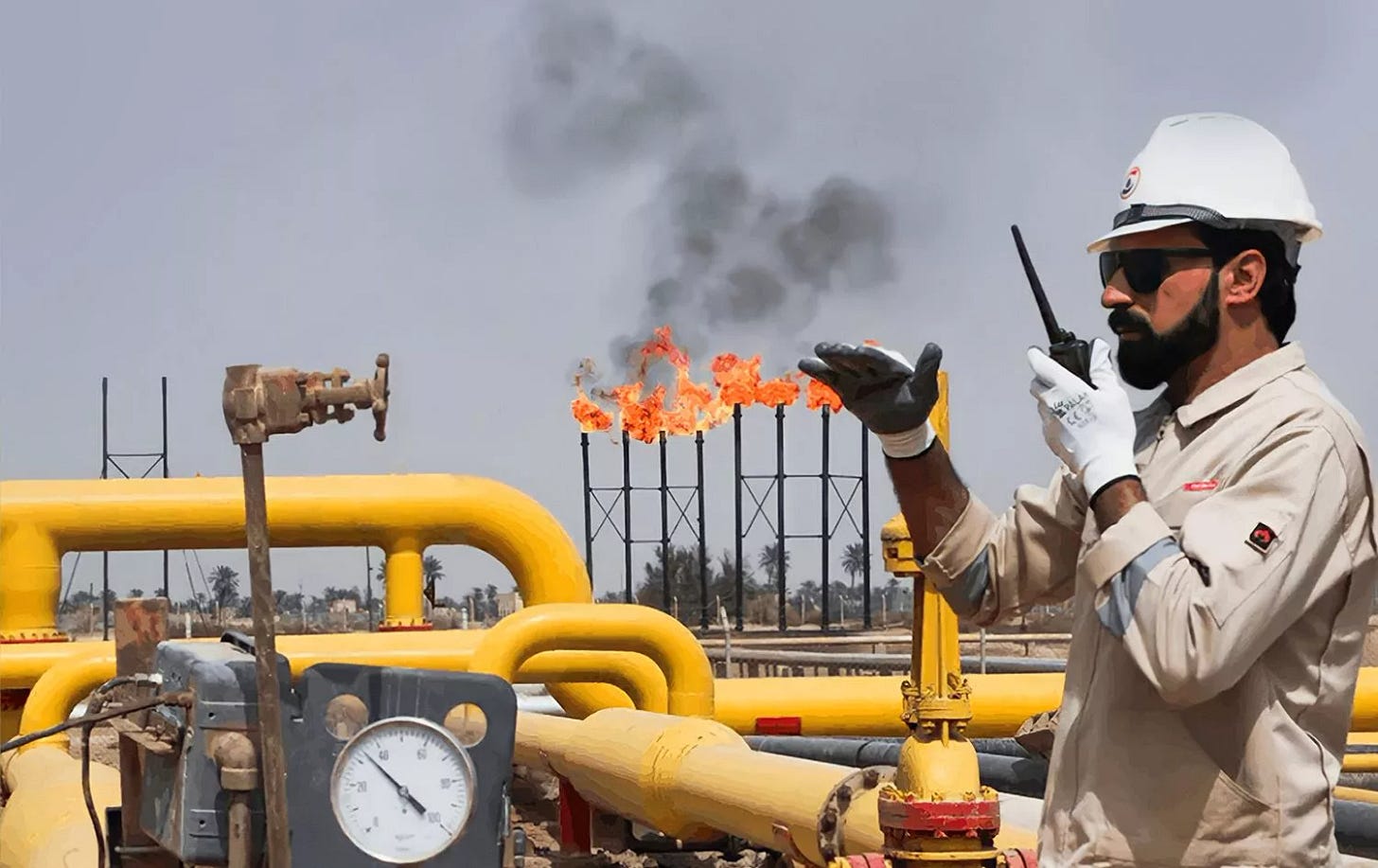Nearly ten years after the destruction of the Baiji refinery amid Iraqi government operations against ISIS militants, and despite the refinery regaining some capacity last year after extensive reconstruction and rehabilitation, a recent assault on May 18 has once again crippled its oil‑processing capabilities.
Specifically, the refinery’s oil plant was targeted, and to date the Iraqi government and Ministry of Oil have remained conspicuously silent.
The Baiji incident reveals a different kind of energy war unfolding within Iraq. It coincided with Baghdad’s announcement that it would halt salary payments to public employees in the Kurdistan Region—citing Erbil’s failure to meet conditions tied to its share of the federal budget.
Sources reveal Iran is behind this move, triggered by the Kurdistan Regional Government’s recent agreements with two American firms to develop its natural gas reserves.
The Refinery and the Battle for Influence
A member of the Iraqi Parliament's Oil, Gas, and Natural Resources Committee, Alaa al‑Haideri, recently disclosed that the Baiji refinery was struck by a specially designed drone capable of evading detection systems.
Surveillance cameras reportedly captured a high-speed drone flying low to breach the refinery’s security perimeter before striking the key oil-processing unit .
Al‑Haideri explained that the drone hit a high-temperature oil storage tank, precisely targeting an area two-and-a-half meters from its summit—an area containing active material—suggesting a meticulously planned sabotage effort. He noted that this oil plant had been dormant since 1991 and was only revived through the diligent efforts of the Iraqi Ministry of Oil’s staff .
As Iraq’s largest oil refining and processing complex, Baiji—built in 1978—is located about 130 kilometers north of Baghdad in Salah al‑Din province .
Security and military analyst Hassan al‑Ubaidi asserted that the lack of transparency from the Ministry of Oil and Prime Minister Al‑Sudani confirms the attack was not accidental or due to a technical failure. All refinery personnel reportedly confirmed that it was carried out via a drone .
In an interview with Noon Post, al‑Ubaidi mentioned that Baiji’s administration had banned employees from bringing smartphones on-site to prevent post-attack videos from leaking—suggesting cover-up efforts .
He further explained that the attack implied the drone was launched from nearby ground that had intimate knowledge of the refinery’s layout and sensitive production zones. The site is heavily guarded with military and federal police units, including Oil Ministry protection forces .
Politician and former MP from Salah al‑Din, Mishan al‑Jubouri, corroborated these security measures. He disclosed that at least two days before the May 18 attack, Baiji implemented strict phone bans and even attempted to patch up damaged equipment to conceal the full scale of the damage .
Local media sources have reported that factional tensions—particularly among Shiite militias—are driving this sabotage, with the drone or a short-range missile used to damage the refinery.
Cameras around the oil plant were disabled two days before the attack, and employees were notified not to return to work. The internal dispute appears tied to lucrative maintenance contracts, allegedly influencing the attack’s execution .
The Kurdistan Region and the Energy Conflict
In the midst of ongoing political strife and Iranian meddling in Iraq, Baghdad’s move to withhold salaries from Kurdistan came just before Eid al-Adha. The Federal Ministry of Finance cited Erbil’s failure to remit revenues and overstep its federal budget share as justification—less than a week after Erbil announced US gas deals .
Soran Omar, a member of the Economic and Trade Committee in Iraq’s Parliament, described the salary freeze as a political retaliation against an agreement signed by Prime Minister Masrour Barzani in Washington with American companies. This move, he explained, creates a new political crisis between Baghdad and Erbil, with ordinary Kurdish citizens bearing the brunt .
Analyst Sajjad Taqi Kazem stated that the US-Kurdistan gas deals are a major achievement for Iraqi Kurds. According to him, pro-Iranian Shiite factions in Baghdad have deliberately neglected to exploit gas fields like Akkas—keeping Iraq dependent on Iranian gas .
Economist Anmar al‑Ubaidi argued that the Finance Ministry’s rationale is illogical, noting that the federal budget has not even been approved, and mid‑year restrictions are still in place. He sees the standings as evidence of overt Iranian interference, aiming to prevent the Kurdistan Region from tapping its gas reserves.
He also highlighted prior drone strikes at the Khurmor gas field in Sulaymaniyah as signs of Tehran’s influence, facilitated through loyalist Shiite militias .
Iraq is witnessing an energy war—one in which Shiite militias assert control over strategic oil facilities, while Iran wields influence over both oil and gas sectors. The country remains hostage to external pressures and internal factional politics, as a weak federal government either capitulates or colludes for sectarian and electoral gains.


